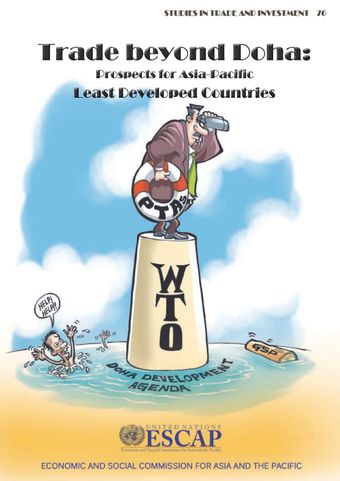ESCAP Studies in Trade and Investment
Filter :
Sustainable Development Goals
主题
出版日期
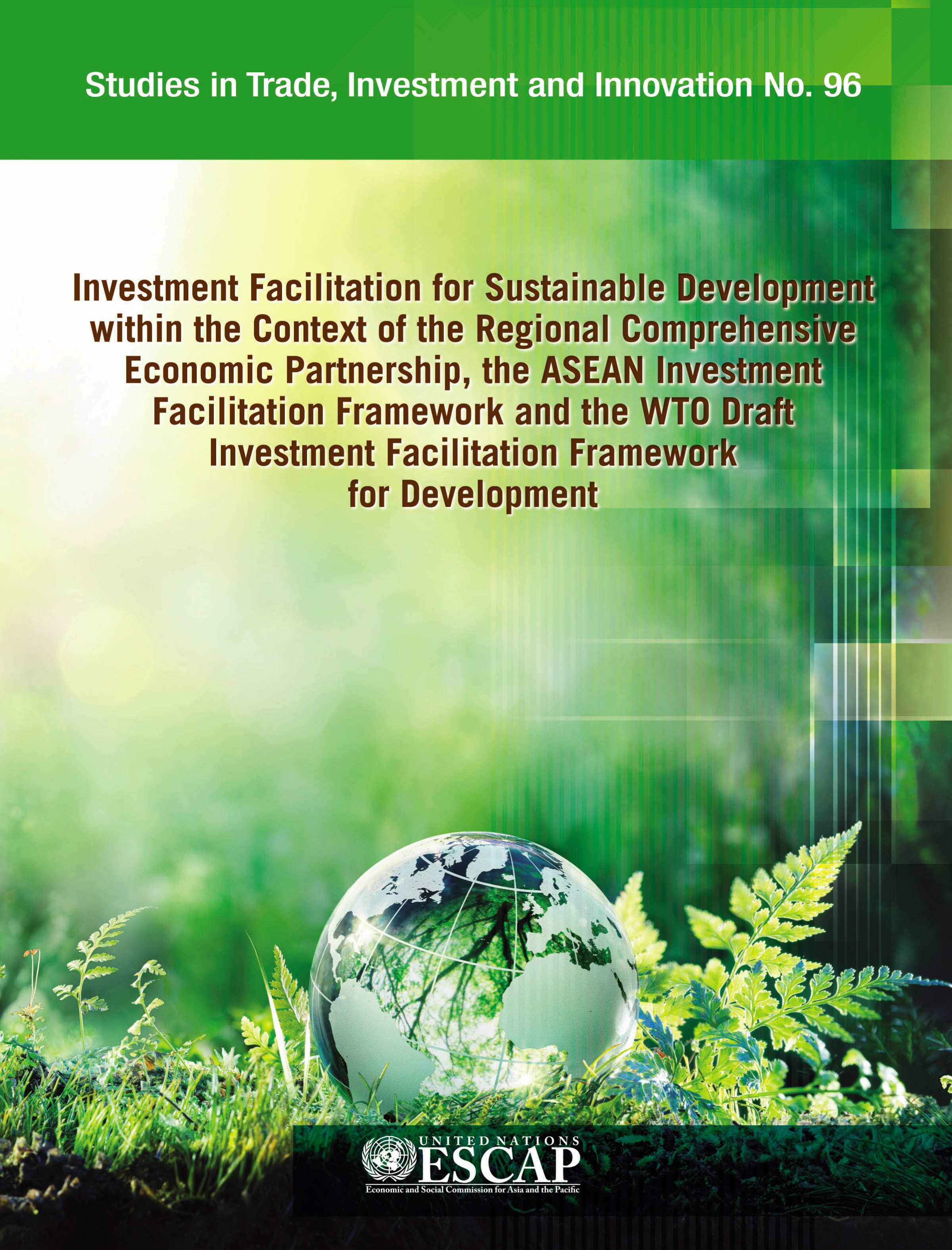
Investment Facilitation for Sustainable Development within the Context of the Regional Comprehensive Economic Partnership, the ASEAN Investment Facilitation Framework and the WTO Draft Investment Facilitation Framework for Development
This report analyses investment facilitation commitments for sustainable development within the context of the the Regional Comprehensive Economic Partnership (RCEP), the ASEAN Investment Facilitation Framework (AIFF), and the WTO Draft Investment Facilitation Framework for Development. While the potential role of foreign direct investment (FDI) in promoting sustainable development is well recognised, the report reveals that significant gaps exist in these instruments with respect to linkages between investment facilitation and sustainable development. In light of the gaps identified, the report puts forward a package of recommendations to help policymakers formulate FDI policies and guide investment promotion agencies (IPAs) to better promote and facilitate FDI for sustainable development.
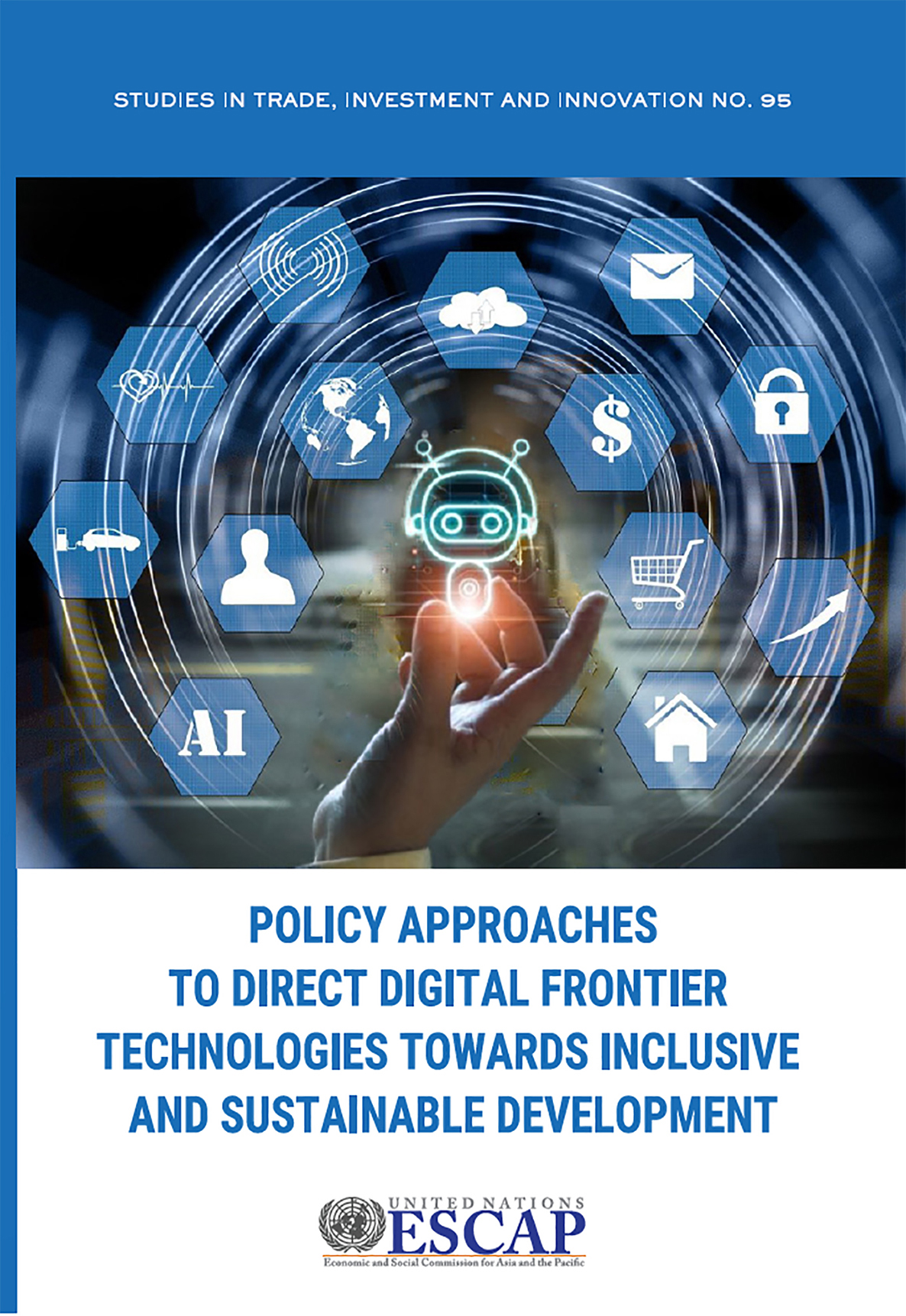
Policy Approaches to Direct Digital Frontier Technologies Towards Inclusive and Sustainable Development
During the COVID-19 pandemic, digital frontier technologies such as artificial intelligence and big data analytics, amongst others, have been mobilized to fight against the pandemic. But it is also important that digital technologies serve the needs of the Sustainable Development Goals. This report reviews the status of digital frontier technologies in the Asia-Pacific region. It stresses that the policy framework for the next generation of technology and innovation should focus on creating an enabling environment for digital frontier technologies to positively impact economy, society, and environment; and to reduce inequalities.
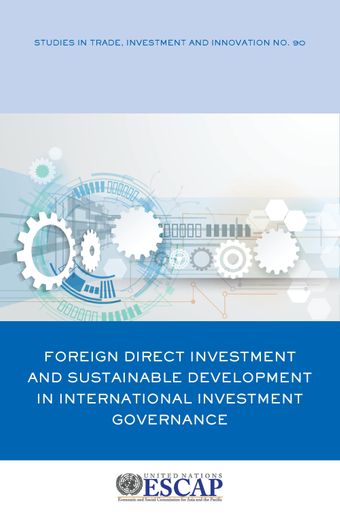
Foreign Direct Investment and Sustainable Development in International Investment Governance
Foreign direct investment (FDI) is a principal means of financing the 2030 Agenda for Sustainable Development and the corresponding 17 Sustainable Development Goals. FDI’s potential contributions to sustainable development in Asia-Pacific can only be realized if the right conditions and policies are in place and if both the quantity and quality of FDI to, from, and within the region increase. This requires not only identifying and prioritizing FDI projects in key sustainable development sectors - such as renewable energy, education, health, water and sanitation, etc. - but also developing and operationalizing FDI policies and legal and regulatory frameworks at national and international levels that maximize the sustainable development potential of FDI in local economies. This publication sets explores the latter point further by focusing on two emerging and important issues related to international investment governance: sustainable development-orientation in international investment agreements (IIA) and the coherence between IIAs and national investment laws in Asia-Pacific. This publication comprises of three chapters. The first chapter sets the scene analyses recent FDI trends, both in terms of flows of inward and outward investment as well as FDI policymaking and international investment governance; the second chapter provides an in depth analysis of the extent to which the bilateral investment treaties of Asia-Pacific least developed countries and landlocked developing countries are oriented towards sustainable development; and, the third and final chapter examines the extent of coherence between the IIA regimes and national frameworks for investment in Thailand and Viet Nam. The chapters in this publication offer promising signs that the momentum for and political will to reform the IIA regime to make it more sustainable development-oriented and coherent are picking up, and ESCAP stands ready to further support its member States in their efforts to achieve both.
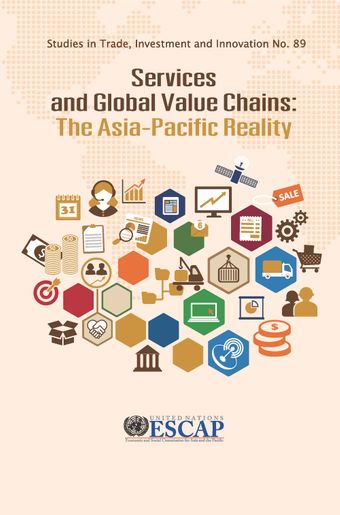
Services and Global Value Chains
The Asia-Pacific Reality
The study on ‘Services and Global Value Chains: Asia-Pacific reality’ reviews the facts and issues related to the roles of services in global value chains. It provides the framework to understand and assess the linkages among different services as well as between services and manufacturing industries. It offers evidence on the contributions of services in the global value chains in Asia-Pacific region and the rest of the world. It also includes case studies about the services inputs to the value chains of specific industries in the region. The study also reviews current policy issues related to trade in services. Ultimately, the study provides lessons for Asia-Pacific economies which see services and participation in GVCs as important pathways toward sustainable development.
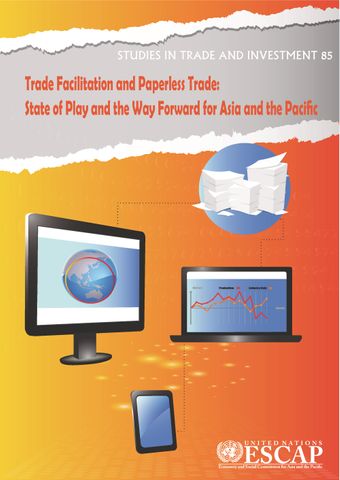
Trade Facilitation and Paperless Trade
State of Play and the Way Forward for Asia and the Pacific
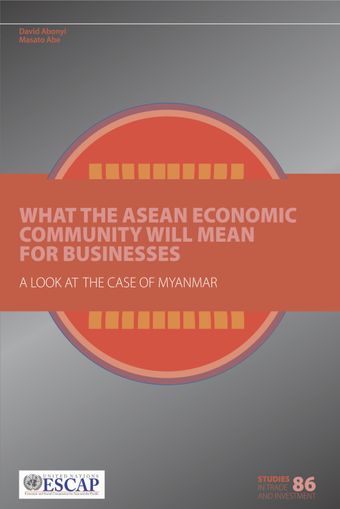
What the ASEAN Economic Community Will Mean for Businesses
A Look at the Case of Myanmar
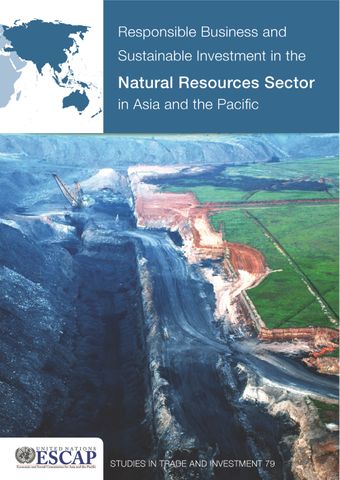
Responsible Business and Sustainable Investment in the Natural Resources Sector in Asia and the Pacific
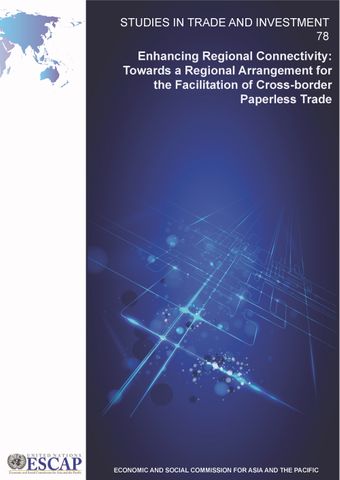
Enhancing Regional Connectivity: Towards a Regional Arrangement for the Facilitation of Cross-Border Paperless Trade
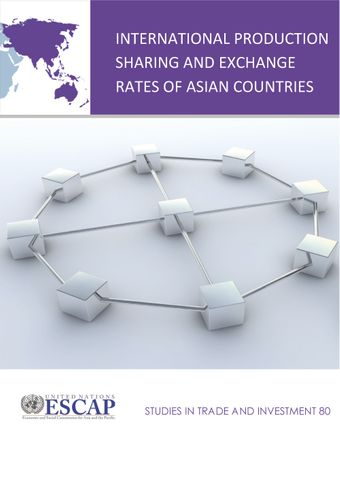
International Production Sharing and Exchange Rates of Asian Countries

Reducing Trade Costs In Asia-Pacific Developing Countries
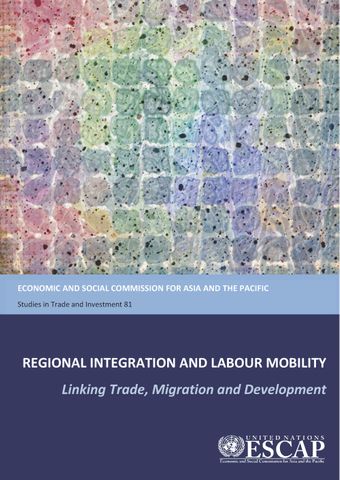
Regional Integration and Labour Mobility
Linking Trade, Migration and Development
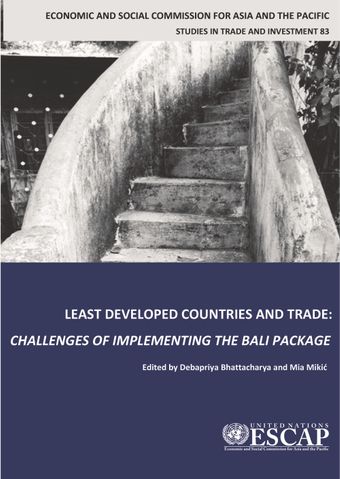
Least Developed Countries and Trade
Challenges of Implementing the Bali Package
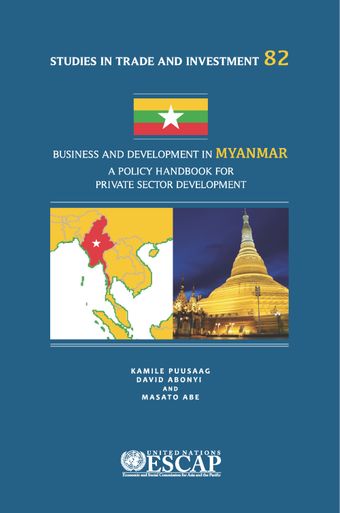
Business and Development in Myanmar
A Policy Handbook for Private Sector Development
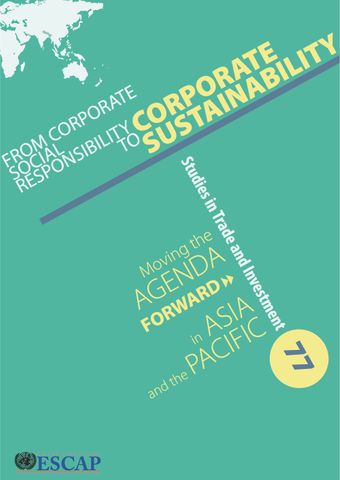
From Corporate Social Responsibility to Corporate Sustainability
Moving the Agenda Forward in Asia and the Pacific
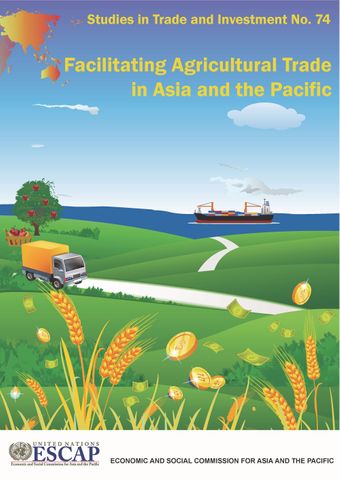
Facilitating Agricultural Trade in Asia and the Pacific
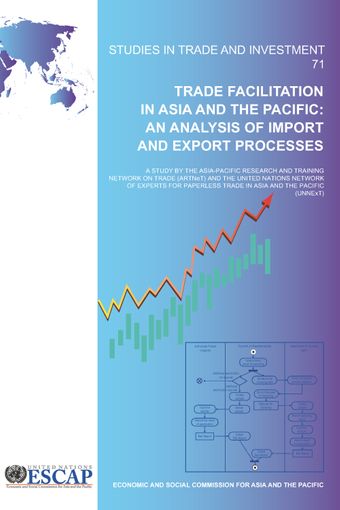
Trade Facilitation in Asia and the Pacific
An Analysis of Import and Export Processes
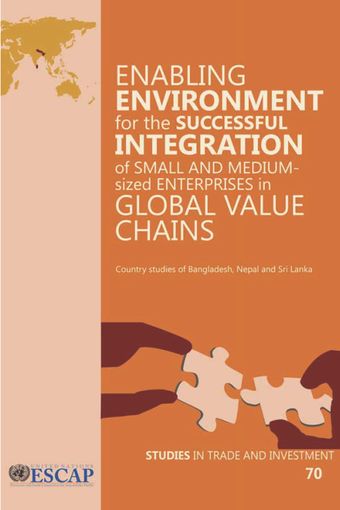
Enabling Environment for the Successful Integration of Small and Medium-sized Enterprises in Global Value Chains
Country Studies of Bangladesh, Nepal and Sri Lanka

India: A New Player in Asian Production Networks?

Promoting Sustainable and Responsible Business in Asia and the Pacific
The Role of Government
